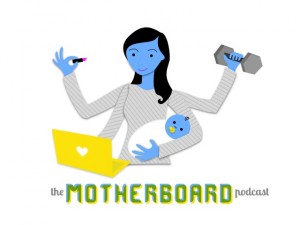Rencontre avec Kathryn Rotondo, développeuse mobile
| Du 16 au 18 avril prochain se tiendra à Paris la 3ème édition de Devoxx France. Juste après aura lieu DevFest PolyMars à Marseille (le 24 avril) puis Mix-IT à Lyon (les 29 et 30 avril). |
Pour ces événements, nous avons décidé d’aller à la rencontre des différentes speakeuses présentes pour en savoir un peu plus sur leur métier de développeuse et leurs inspirations. Cela rejoint notre envie de mettre en avant des rôles modèles.
J’ai eu le plaisir d’interviewer Kathryn Rotondo, développeuse mobile à Tübingen (Allemagne), qui animera la session So Easy a Child Could Do It: Designing Mobile Apps for Children à Devoxx.
Ludwine : Who are you ?
Kathryn : I’m a mobile developer, focused on making playful and effective apps for children. I was formerly an Actionscript developer, but in the past few years have ported my interest and skills around interactivity over to iOS.
Ludwine : Could you describe your typical day ?
Kathryn : I’m a freelancer, so my work day can vary a lot depending on whether I’m in the middle of a client project, which are intense periods of work, or having some downtime in-between. I’m an American living in Germany, so since most of my clients are based in the US, the time difference can mean that my day is often slanted toward evening. This has advantages and disadvantages. During the normal 9-5 hours, I can get really great focused work done, because I’m alone in a quiet apartment and my clients aren’t even awake to interrupt me. At 4:30 p.m. I wrap up whatever I’m doing and pick up my child from daycare, then have dinner and family time until about 8:30 p.m. After he’s asleep, I often get back online and meet with clients over Skype. It’s not unheard of for me to have a meeting at 11pm! So the disadvantage is that I never really leave work, so I have to make a concerted effort to put technology away and really unplug and relax. One way our household does this is tech-free Sundays, where we unplug from our computers, tablets, and TV, and just spend time together.
Ludwine : Your talk at Devoxx is “So Easy a Child Could Do It: Designing Mobile Apps for Children.” Could you tell us more ?
Kathryn : Kids can seem to understand touch interfaces pretty quickly, but there are still some best practices for making a good user experience for kids. For example, any touch gestures that require two fingers are more complicated than those requiring one finger, so you need to think carefully about using something like pinch/zoom. On the flip side, children may accidentally rest fingers or their second hand on parts of the screen, so your app may need to account for unintended multi-touch. And for gestures like drag and drop, or tracing along a path, it’s a good idea to support partial completion, since maintaining contact between the finger and screen can be a challenge. There are also differences in how to handle text (which younger children can’t read!), audio, and perhaps most importantly, privacy. With laws like COPPA in the US, it’s important to disclose to parents any ways that you connect to the internet or social networks, or collect personal information about children. And of course to prevent them from making purchases without parental approval. Apple finally just published their first guidelines about this: https://developer.apple.com/app-store/parental-gates/. The talk is full of videos from delightful kids’ apps, so it should be a pretty entertaining session.
Ludwine : What is your favorite technology at the moment and why ?
Kathryn : For web, I have been loving SCSS. It extends CSS, allowing you to use variables, functions, nesting, and style inheritance - basically making it feel like a programming language.
For mobile, I haven’t yet but would love to play around with Estimote Beacons. These are little sensors that can broadcast their location and communicate with an app to know when you’re nearby. I have an idea for an app to help kids and families, so I’m really looking forward to trying those out soon.
Ludwine : Encouraging women developers is important to you. You founded in particular the Motherboard Podcast. Could you explain this initiative ?
Kathryn : When I became a mom, I was working in an environment where there were no other women on my team, and none of the men were dads. This meant that I had to invent most of my own solutions, such as finding an appropriate place in the office to pump milk, and being the first person on the engineering team to work part-time. It was kind of a lonely place, without any role models to show me how to make it work. So my goal with the podcast is to spread information between mothers working at different companies, so that over time we can spend less mental energy on these things, and keep our focus on making great software. I started the podcast as a Kickstarter campaign in December, and it was successfully funded. The first season includes interviews with moms at Red Hat, Medium, Google, Apple, Microsoft, and one freelance consultant.
The first episode is out, with more coming very soon, and you can listen to them at http://motherboardpodcast.com or on iTunes.
Ludwine : Anything else you’d like to share ?
Kathryn : Here are a few of my favorite resources for technical women. It can sometimes feel lonely to be the only woman engineer on your team, but there are plenty of women out there, eager to support and encourage each other:
Communities:
Podcasts:
Merci Kathryn pour cette interview et à Devoxx France !



